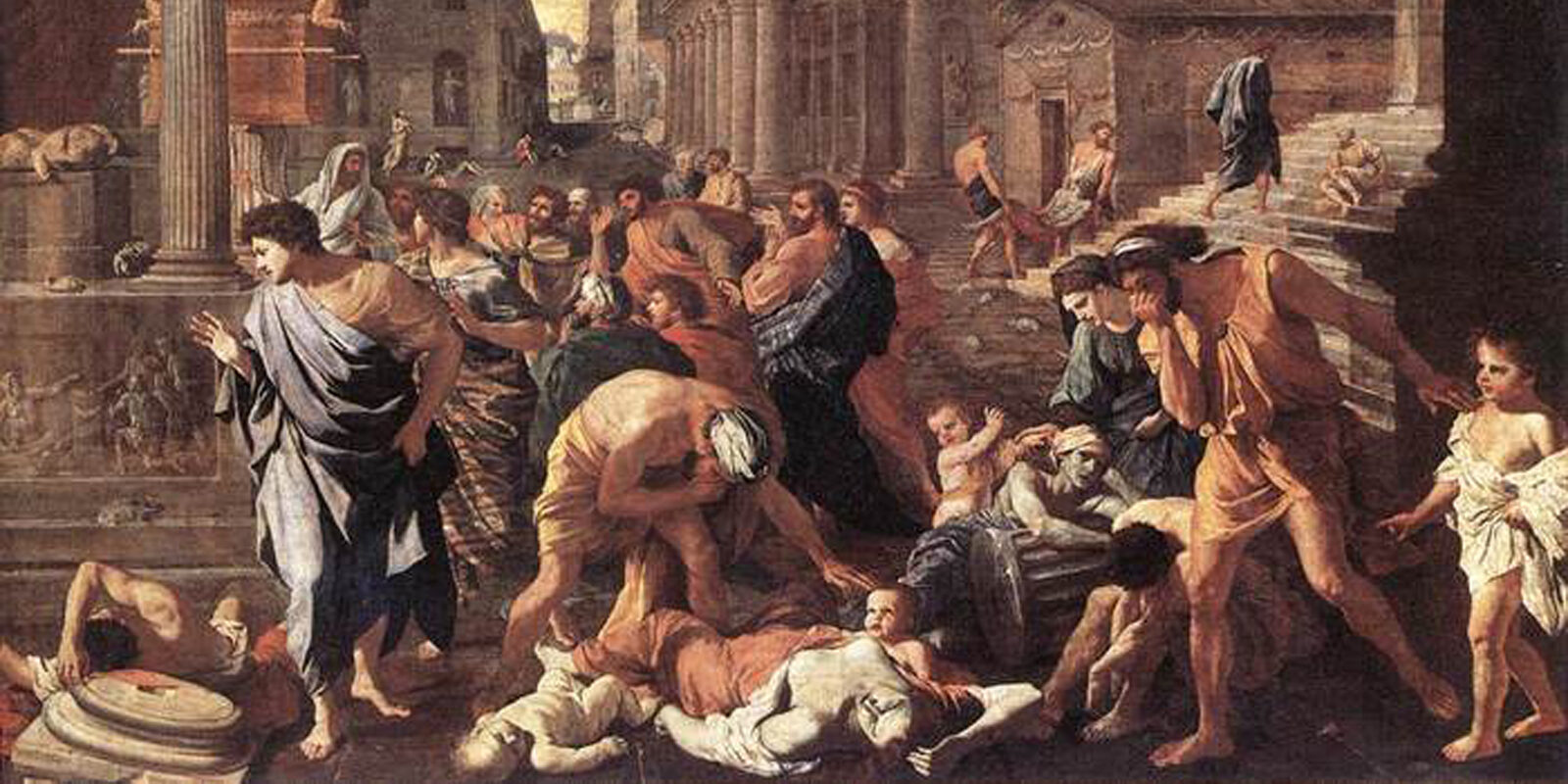The people clustered in large metropolitan cities, the sick infecting the well and spreading the disease through contact in close quarters. Field hospitals were set up in public places to handle the overflow of infected patients. When the bodies became too many to easily bury, they were stacked up in containers outside.
According to an eyewitness:
They became infected by nursing one another and died like sheep. And this caused the heaviest mortality; for if, on the one hand, they were restrained by fear from visiting one another, the sick perished uncared for, so that many houses were left empty through lack of anyone to do the nursing; or if, on the other hand, they visited the sick, they perished.

This grim scene sounds eerily similar to what’s unfolding in parts of New York City in 2020, as citizens deal with the panic, fear and fallout wrought by the COVID-19 virus.
But it describes the city of Athens in ancient Greece, around 430 BC. And the ‘eyewitness’ is the Greek historian Thucydides, who captures the scene in his account of the Peloponnesian War between Athens and Sparta. In the second year of the war, Athens was laid low by an unidentified and deadly virus that cost the city a huge chunk of its population, and, eventually, the war.
The parallels between the pandemic in ancient Greece and the modern one aren’t lost on Laura McClure, a professor of classics who’s been teaching the subject for over two decades.
“The classical world is relevant in many ways to what’s going on in our country right now,” says McClure. “In so many ways, in fact, that’s kind of scary.”
As McClure points out, plague crops up a couple of times in the annals of classic literature. It’s in Homer’s Iliad, as a punishment unleashed by Apollo, the sun god, on the Greek army. It’s also the plot driver in Sophocles’ legendary play Oedipus Rex—and the playwright himself was living through a pandemic when he wrote the play.
For McClure, the COVID-19 pandemic stands as yet another reminder of what her chosen field has to offer modernity.
The plague that struck ancient Athens began in North Africa, Egypt and Libya before sweeping into the Greek world—through a harbor, much as COVID-19 has created issues for harbor cities in the United States like New Orleans and cities in Florida. As one of the major urban centers of the time, it faced the same types of problems modern U.S. cities do in terms of deploying social distancing as a survival strategy. Large modern cities have had to resort to storing bodies in freezer trucks and planning burials in public park spaces. Athens, too, struggled with how to handle the mounting body count.
“The disposal of the dead was a huge problem for the Greeks,” explains McClure. “Funerary rituals were incredibly important to them, but people were dying so quickly it was impossible to dispose of all the corpses properly.” There is archaeological evidence of panicked mass burial, with over a thousand tombs erected during the end of the reign of Pericles, a beloved ruler who fell victim to the plague.
More than anything, McClure is struck by how one of the enduring hallmarks of Greek tragedy—the rapid reversal of fortune—is present in both the plague of Athens and the current COVID-19 crisis.
“Athens was at the height of power, economically, militarily and intellectually right before the plague struck,” she notes. ‘Then there’s an immediate reversal, and they’re plunged into a world of sickness and death.”
In the United States, a surge in the stock market and general economy ground to an abrupt halt, with more than 17 million people losing their jobs as stores and businesses closed to prevent the spread of COVID-19.
Given centuries of expertise and advantages of modern medicine, the United States is unlikely to suffer the same fate as Athens, which never regained its dominant status following the plague. But that doesn’t mean there’s not much to ponder and learn from the parallels between the two worlds.
“Everything I teach about in classics has relevance to modern times, and as Thucydides himself recognized, history is cyclical,” says McClure.” The Greeks grappled with the same large questions of politics, religion, identity and loss that we’re grappling with today.”
